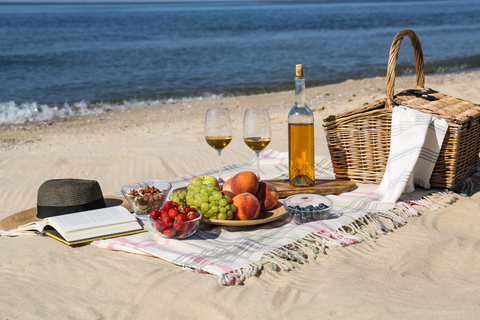
Wine, a tapestry of flavors and aromas, is a beverage that demands our attention and care. Yet, when the caress of heat enters the equation, questions arise about the potential impact on this cherished elixir. It's a conundrum that many wine enthusiasts grapple with - how does heat affect the bottle that holds a symphony of taste?
In this exploration, we embark on a journey through the intricate relationship between wine and heat. We seek to unearth the truths that lie beneath the surface, understanding how this dynamic duo influences the quality and character of our beloved bottles. For wine is not just a beverage; it is an experience, a moment encapsulated in every sip, a celebration of life's nuances.
As we delve into this intriguing interplay, it's crucial to acknowledge that wine and heat share a complex dance. When subjected to elevated temperatures, wine undergoes a transformation. It's a process that can either enhance or diminish its essence, depending on various factors - the intensity and duration of the heat, the type of wine, and the conditions of its storage.
Imagine a bottle of wine as a time capsule, each year represented by a layer of flavor and aroma. Now, envision exposing that capsule to a sudden surge of heat. The layers meld, revealing new facets of the wine's character, but also risking an untimely maturity that may alter its intended profile.
In this endeavor, we aim to discern the effects of heat on wine, answering pivotal questions that arise when considering the intersection of these two elements. How long can a bottle endure the embrace of high temperatures? What are the telltale signs of heat-induced alterations in wine's composition? And, perhaps most importantly, what are the implications for our tasting experience?
Join us as we embark on this expedition, uncovering the mysteries that lie within the nexus of wine and heat. With each revelation, we equip ourselves with the knowledge to safeguard our cherished bottles, ensuring that they continue to grace our palates with the richness and depth that define them. For, in this world of wine, every bottle tells a story, and every sip is a chapter in the tale of our appreciation.
How Long Does it Take for Wine to Go Bad in Heat?

The dance between wine and heat is a delicate one, a waltz of transformation that occurs over time. When a bottle of wine is subjected to elevated temperatures, its aging process accelerates, often resulting in a premature evolution of flavors and aromas. The precise duration for wine to undergo this metamorphosis hinges on various factors, each influencing the pace of its aging.
Consider a scenario where a bottle of wine finds itself in the searing confines of a car during the blistering summer months. In just a matter of hours, the wine can experience discernible alterations. The heat imparts an urgency to the aging process, prompting the wine to develop characteristics that might have otherwise taken years to manifest.
The impact of heat is particularly pronounced in more delicate wines. Light-bodied whites and rosés, known for their vibrant and fresh profiles, are often the most susceptible. Their flavors, once crisp and lively, may give way to a subdued, mellowed palate. Fruitiness can transform into a stewed or overripe quality, signaling a hastened maturation.
However, it's worth noting that robust red wines, with their more substantial tannin structures, possess a greater resilience to the effects of heat. While they are not immune, their denser composition allows them to withstand higher temperatures for longer periods before exhibiting significant alterations.
Ultimately, the duration of exposure to heat is a critical factor in determining the extent of the wine's transformation. It's a reminder that even a relatively short stint in unfavorable conditions can leave an indelible mark on the character of a bottle. As stewards of these liquid treasures, it falls to us to ensure that they are shielded from the potentially detrimental effects of excessive heat, allowing them to age gracefully and reveal their true potential in due time.
How Do You Know if Wine is Ruined by Heat?
Detecting heat damage in wine requires a discerning palate and keen observation. Signs of heat-induced spoilage may include a flattened taste profile, where vibrant fruitiness gives way to a duller, stewed character. The wine might exhibit a prematurely aged appearance, with a color that doesn't align with its expected maturity.
Additionally, the aroma can provide telltale clues. Heat-damaged wine may exude a slightly cooked or baked quality, reminiscent of overripe fruit or caramelized sugars. These indicators serve as red flags, signaling that the wine may have suffered due to excessive exposure to heat.
Can Heat Damaged Wine Make You Sick?
While heat-damaged wine may not be toxic, it can certainly be unpalatable and disappointing. Consuming wine that has been subjected to prolonged high temperatures can result in a subpar tasting experience. The vibrant nuances that make wine a sensory delight may be lost, replaced by flat, muted flavors.
In extreme cases, where wine has been exposed to extreme heat for extended periods, it's possible for the wine to develop off-flavors and aromas that render it unpleasant or even undrinkable. However, it's important to note that this is rare, and most instances of heat exposure lead to a loss of quality rather than a health risk.
How Long Can You Leave Alcohol in a Hot Car?
Leaving alcohol, including wine, in a hot car is a risky endeavor. In scorching temperatures, the interior of a car can become a veritable oven, with temperatures soaring far above what wine is accustomed to. As a rule of thumb, it's best to avoid leaving alcohol in a hot car for any extended period, especially during the sweltering summer months.
Is it OK to Store Alcohol in a Hot Garage?
Storing alcohol, including wine, in a hot garage is ill-advised. Garages, especially those without climate control, can experience significant temperature fluctuations, exposing wine to varying levels of heat. This inconsistent environment can lead to rapid aging and potential spoilage.
If storing wine is a necessity, consider investing in a wine refrigerator or finding a cool, dark corner within your home. Proper storage conditions are paramount to preserving the integrity and quality of your cherished bottles.
Conclusion: Navigating the Heat Wave
In the intricate dance between wine and heat, we've uncovered a tapestry of transformations that occur when these elements converge. Every bottle becomes a time capsule, its essence evolving with each passing moment. Understanding the nuances of this interplay empowers us to safeguard our cherished bottles, ensuring they continue to grace our palates with their intended brilliance.
As we embark on this journey, let us not forget the innovation that is Graham + Fisk's Wine in a Can. This modern approach to wine encapsulates convenience without compromising quality. The canned format not only offers a practical solution for outdoor adventures but also ensures that the wine within remains shielded from the potentially detrimental effects of heat. It's a testament to the adaptability of the wine industry, embracing new forms while preserving the integrity of the liquid within.

So, whether you're indulging in a classic bottle or exploring the contemporary allure of wine in a can, remember that each sip is a chapter in the tale of our appreciation. Let us raise our glasses to the preservation of wine's true essence, and to the innovations that keep this timeless tradition alive and thriving. Cheers to the journey ahead!







